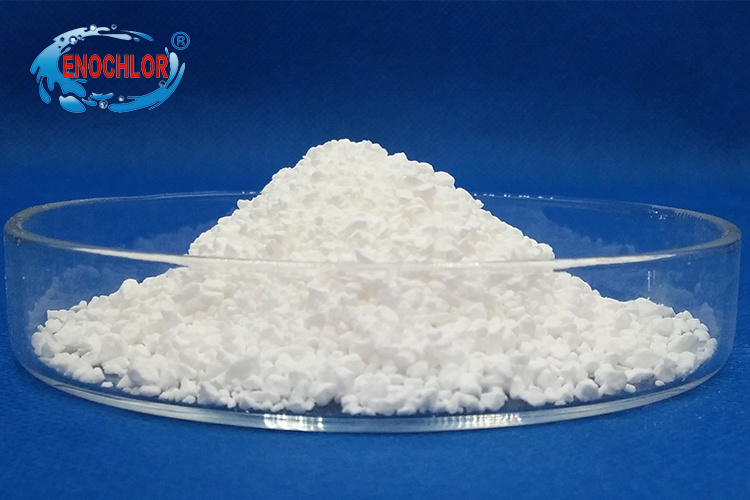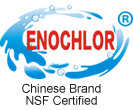06
2025
-
07
Revolutionizing Wastewater Treatment with Advanced Chlorine Solutions
The adoption of advanced chlorine solutions marks a significant turning point in the field of wastewater treatment. With their enhanced disinfection capabilities, cost-effectiveness, and adaptability to various applications, these solutions are setting new standards for efficiency and compliance.
Wastewater treatment is a critical process for maintaining environmental health and public safety. With increasing industrialization and urbanization, the volume of wastewater generated has surged, necessitating advanced solutions for its efficient treatment. Traditional methods often struggle to keep pace with regulatory demands and environmental standards. This is where advanced chlorine solutions come into play, offering transformative benefits that enhance the efficacy of wastewater treatment systems.
The Importance of Efficient Wastewater Treatment
Wastewater contains a wide array of pollutants, including organic matter, pathogens, nutrients, and heavy metals. Treating this wastewater effectively is essential not just for protecting public health but also for preserving ecosystems. Inefficient treatment can lead to severe environmental consequences, including the contamination of water bodies, harm to aquatic life, and the spread of disease. Therefore, enhancing wastewater treatment processes with innovative solutions like advanced chlorine systems is crucial.

Understanding Advanced Chlorine Solutions
Advanced chlorine solutions refer to modern chlorine-based treatments that improve the disinfection process in wastewater management. These solutions often include chlorine gas, sodium hypochlorite, and calcium hypochlorite, each offering unique benefits tailored to specific treatment needs.
Chlorine Gas: The Powerhouse of Disinfection
Chlorine gas is one of the most effective disinfectants used globally. Its strong oxidizing properties enable it to eliminate a vast range of microorganisms, including bacteria, viruses, and protozoa. The use of chlorine gas in treatment facilities can be optimized through advanced dosing systems, ensuring consistent and effective disinfection.
Sodium Hypochlorite: A Versatile Solution
Sodium hypochlorite is widely used due to its ease of handling and application. It is produced on-site in many facilities, reducing transportation risks and costs. This flexibility allows for immediate adjustments in disinfection levels, making it ideal for treating varying volumes and types of wastewater.
Calcium Hypochlorite: Stability and Convenience
Calcium hypochlorite is a solid chlorine compound that has a longer shelf life than liquid forms. Its stability makes it suitable for applications where consistent disinfection is required over extended periods. Calcium hypochlorite can be particularly useful in remote locations or facilities with limited access to liquid chlorine supplies.
Benefits of Advanced Chlorine Solutions in Wastewater Treatment
The integration of advanced chlorine solutions into wastewater treatment processes offers numerous advantages:
1. Enhanced Disinfection Efficiency
Advanced chlorine systems provide superior disinfection capabilities compared to traditional methods. They can effectively reduce total coliforms and other pathogens, thereby meeting regulatory standards more consistently.
2. Improved Removal of Organic Matter
Chlorine not only disinfects but also helps break down organic pollutants. This dual action results in cleaner effluent, thereby protecting receiving water bodies from contamination.
3. Cost-Effectiveness
While the initial investment in advanced chlorine systems may be higher, the long-term savings in operational efficiency and reduced regulatory penalties can be significant. Moreover, the ability to produce chlorine on-site diminishes transportation and storage costs.
4. Environmental Compliance
With tightening regulations surrounding wastewater discharge, advanced chlorine solutions ensure that treatment facilities remain compliant. This compliance is essential for avoiding fines and promoting sustainable practices.
5. Versatility Across Applications
Advanced chlorine solutions are adaptable to a variety of wastewater types, whether from municipal sources, industrial processes, or agricultural runoff. This versatility makes them a preferred choice in diverse treatment scenarios.
Challenges and Considerations in Implementing Advanced Chlorine Solutions
Despite their advantages, the implementation of advanced chlorine solutions does come with challenges:
1. Safety Concerns
Chlorine is a hazardous material, necessitating strict safety protocols during handling and storage. Facilities must invest in training and equipment to mitigate risks.
2. Potential Formation of Disinfection Byproducts (DBPs)
The use of chlorine can lead to the formation of harmful disinfection byproducts, which can pose environmental and health risks. It is essential to monitor and manage these byproducts to ensure safety.
3. Infrastructure Upgrades
Older treatment facilities may require significant upgrades to accommodate advanced chlorine systems. This can entail substantial capital investment and planning.
Case Studies: Successful Integration of Advanced Chlorine Solutions
Several facilities worldwide have successfully integrated advanced chlorine solutions, showcasing their efficacy:
1. Municipal Wastewater Treatment Plant in California
This facility adopted sodium hypochlorite for its disinfection process, significantly reducing pathogen levels in the effluent. The plant reported a 30% decrease in operational costs due to the efficiency of the system.
2. Industrial Effluent Treatment in Germany
An industrial facility implemented advanced chlorine gas systems, achieving compliance with stringent EU regulations. The facility noted enhanced removal rates of organic pollutants, leading to improved water quality.
Future Trends in Wastewater Treatment with Chlorine Solutions
The wastewater treatment industry is continually evolving, with advancements in chlorine solutions poised to play a central role. Future trends include:
1. Automation and Smart Systems
The integration of IoT and automation in chlorine dosing systems will enhance precision and responsiveness, ensuring optimal disinfection levels in real-time.
2. Enhanced Monitoring Technologies
New technologies will provide better monitoring of chlorine levels and the formation of byproducts, allowing for more effective management of disinfection processes.
3. Sustainable Practices
The push for sustainability will drive the development of chlorine solutions that minimize environmental impact while maintaining high disinfection efficacy, such as using chlorine in conjunction with advanced oxidation processes.
The adoption of advanced chlorine solutions marks a significant turning point in the field of wastewater treatment. With their enhanced disinfection capabilities, cost-effectiveness, and adaptability to various applications, these solutions are setting new standards for efficiency and compliance. As the industry continues to evolve, embracing innovation while addressing safety and environmental concerns will be crucial. Through thoughtful integration of these advanced systems, we can ensure a cleaner and safer environment for future generations.
2023-04-23







